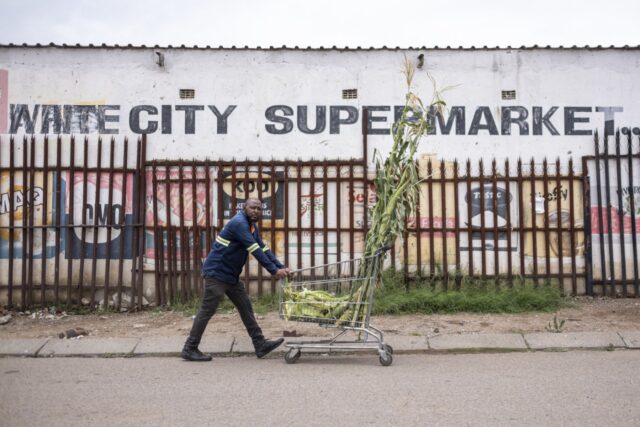
The tragic deaths of 23 children in Johannesburg this year due to suspected food poisoning have ignited widespread anger in South Africa, particularly toward foreign nationals running small corner shops, commonly known as spazas.
In Soweto’s Naledi area, six children lost their lives in October after allegedly consuming snacks from a local spaza shop. The shop, reportedly operated by an Ethiopian national, was attacked and looted by enraged residents. Even the property owner renting the premises fled in fear. Although autopsy results linked the deaths to a pesticide, no direct connection to the shop has been officially confirmed.
The tragedy has fueled mistrust and led to heightened scrutiny of foreign-owned spaza shops. Authorities have conducted raids to enforce compliance with laws and regulations, resulting in the closure of several shops for selling expired food, unregulated skin products, and improperly stored meat. In Olievenhoutbosch near Pretoria, six spaza shops were shut down last week for violations, according to municipal council official Sarah Mabotsa.
This series of events has sparked a broader debate about food safety, xenophobia, and regulatory oversight in South Africa’s informal retail sector.
– ‘Operation Dudula’ –
As the continent’s most industrialised economy, South Africa is a prime destination for people seeking work even though its own unemployment rate is around 32 per cent.
The competition has triggered mistrust and even violence.
If authorities don’t step in, a xenophobic vigilante group known as Operation Dudula — which means “push back” in Zulu — often does.
In Naledi, efforts by Dudula recently saw the foreign shopkeepers at six spazas replaced with South African nationals.
“We have chased the foreigners. Foreigners were running the shop before and we kicked them out,” one of the new shopkeepers, Maphoka Mohalanwani, said proudly.
The recent spate of food poisonings is without doubt “related to the foreigners”, the 54-year-old said.
“When our kids eat chips from the streets, they do not die… they are dying because of their poison,” said Mohalanwani.
– Eliminating competition –
The tragic wave of deaths of young children has gripped South Africa, with speculation running wild in the absence of proven facts about what really caused their deaths.
Some people believe that foreigners are deliberately setting out to poison South Africans; others say the outcry is a manufactured ploy to get the spazas and their profits back into the hands of locals.
“We don’t know what is causing these things (cases),” said Somali national Zachariah Salah at one spaza in White City, Soweto.
It was not even clear if the claims of poisonings were genuine or not, he said. Either way, “it’s tragic for us.”
Loren Landau, who studies migration at the University of the Witwatersrand in Johannesburg, said attacks against foreign-owned shops were “really about eliminating competition for business.
“If you try to shut down South African businesses, people would protest,” he said. But “you can go after a foreigner, no one will protest.”
Back in White City, one of the spazas that shut down in the initial flare of anger a few weeks back has reopened, to the relief of locals who rely on their corner shops.






















